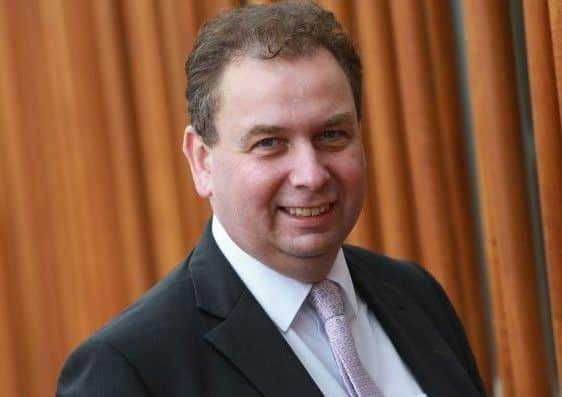Gordon Macdonald: We must keep remembering that every abortion ends a human life


The argument goes that now the people of the Republic of Ireland have voted to allow their politicians to legislate to legalise abortion, Northern Ireland should fall into line also. The proponents of this argument say that it is unacceptable in the 21st century for one part of the British Isles still to have ‘restrictive’ laws on abortion.
There have been explicit calls by some MPs for Westminster to ignore the devolution settlement and legislate to introduce abortion on request in Northern Ireland. Leaked papers from the Northern Ireland Office show that whilst the UK government has no intent of picking up this hot potato and legislating for abortion in Northern Ireland, it might not be too bothered if someone else were to propose such legislation
Advertisement
Hide AdAdvertisement
Hide AdOne would be tempted to think that abortion has never been debated in Northern Ireland and therefore a debate is long overdue. This is incorrect. The Northern Ireland Assembly debated this issue in 2016 and decided to maintain the Province’s stance on abortion.


The people of Northern Ireland had the opportunity to vote in an election, in which abortion was a key issue, in 2017. The outcome of that election suggests that the population of Northern Ireland continue to support candidates and parties which oppose a change in the Province’s abortion law.
The real issue is that some Westminster politicians disagree with the decisions taken by the people of Northern Ireland and seek instead to impose their own view on Northern Ireland. This occurred recently when the UK government bowed to political pressure and agreed to fund abortions on the NHS in England and Wales for women from Northern Ireland.
The Scottish Government also decided to fund abortions for women from Northern Ireland. Those decisions undermined the devolution settlement – it is an issue for the democratically-elected Northern Ireland Assembly to decide.
There have been over 507,000 abortions in Scotland since the Abortion Act came into force in 1968. Disabled children are most at risk with 90 per cent of those who suffer from Down’s Syndrome being aborted. In total, 98 per cent of abortions are carried out under Ground C which allows abortion on request essentially for social reasons. In 2017, the number of abortions in Scotland reached a five-year high at 12,212.
In contrast, over 100,000 people are alive in Northern Ireland because that law does not apply there. These 100,000 people are not an abstract figure but everyday people – friends, neighbours and colleagues that benefit from the life-affirming law Northern Ireland has in place.
The time has come to reconsider our approach to abortion. The case for reviewing the 24-week limit is overwhelming. A 2017 national poll by Where Do They Stand showed 70 per cent of women would like to see the 24-week limit reduced. 89 per cent of people agreed that gender-selective abortion should be explicitly banned by law.
There seems to be a clear consensus that women and children deserve better than what the current law on abortion provides, so why extend this deeply flawed legislation to Northern Ireland?
Advertisement
Hide AdAdvertisement
Hide AdAlongside a review of time-limits, we need to make sure there is adequate support for mothers facing crisis pregnancies. Women who experience a crisis pregnancy need long-term support, not the ‘quick-fix’ of abortion. The Scottish Government should provide more funding for independent counselling. Such a service is vital in helping mothers both during and after pregnancy.
Every abortion is a tragedy, but the silence of our politicians is also tragic. It was left to Sir Brian Souter on the BBC Question Time show to raise the subject of the need to review the Abortion Act. He pointed out that, with improvements in medical technology and practice, children at 22 and 23 gestation weeks are now viable of life.
Despite all the recent debate about abortion, it takes a businessman to mention the humanity of the unborn child. Our politicians seem unwilling or unable to do so. We must remember that the unborn child and his/her inherent value and worth. We must not overlook the fact that every time we conduct an abortion, we are ending a human life.
Dr Gordon Macdonald is parliamentary officer for CARE for Scotland